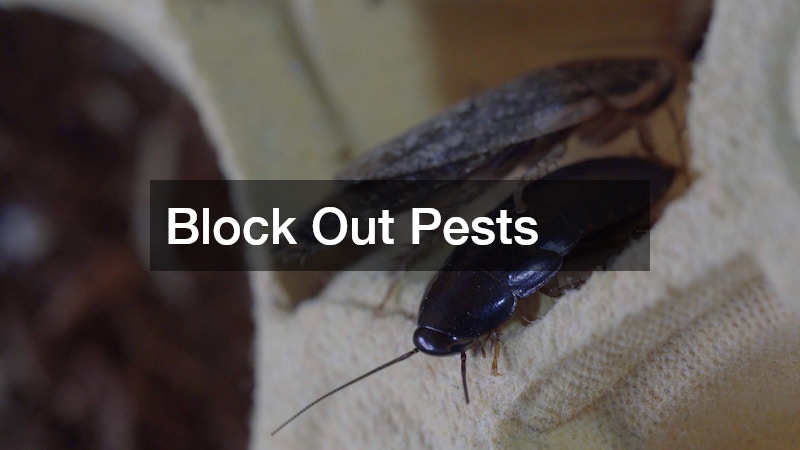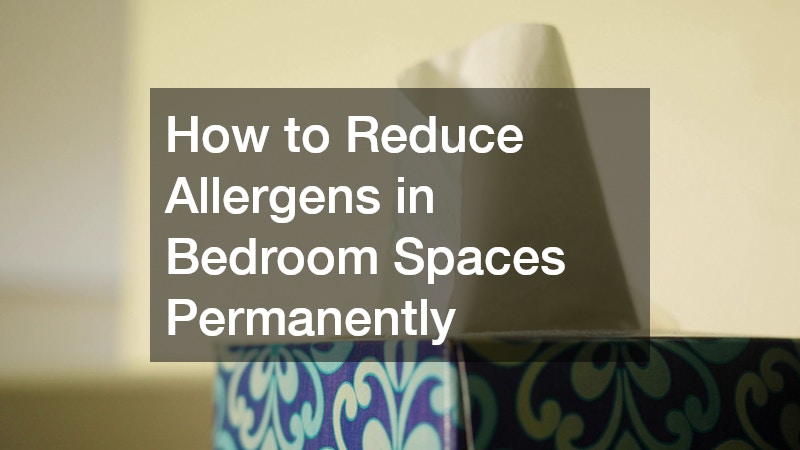If you’re waking up congested, sneezing through the night or constantly dealing with itchy eyes, the cause might not be seasonal allergies — it could be your bedroom. Allergens like dust mites, mould spores and pest droppings often build up where we least expect them. Bedrooms, being closed-off and warm environments, are particularly prone to these hidden triggers. Fortunately, there are practical steps you can take to make your space healthier for good.
In this article, we’ll show you how to reduce allergens in bedroom spaces permanently using three simple but highly effective strategies. First, we’ll look at how regular carpet cleaning can drastically cut down dust and trapped allergens in your flooring. Then, we’ll explore how professional mould removal can tackle moisture and prevent spores from spreading through your air and fabrics. Finally, we’ll explain why pest control is essential — not just for keeping bugs out, but for reducing allergy-causing waste they leave behind.
Together, these methods form a powerful, long-term approach to improving your sleep environment and your overall health. Whether you suffer from allergies yourself or simply want a cleaner home, these tips are the foundation of an allergen-free bedroom.
Clean Your Carpets

Carpets can be one of the largest collectors of allergens in any home — especially in the bedroom. With every step, particles like pollen, dust, pet dander and dead skin cells are kicked up and settle deep into the fibres. Even frequent vacuuming can miss what’s embedded below the surface. This trapped debris not only affects air quality but can also serve as a food source for dust mites, which are a major cause of allergic reactions. If you want to know how to reduce allergens in bedroom areas effectively, the carpet is a crucial place to start.
The most effective solution is routine, professional carpet cleaning. This process uses high-powered equipment and specialised detergents to break down allergens and remove them from deep within the carpet pile. Unlike surface cleaning, this method targets the root of the problem and removes what you can’t see — and what standard vacuums can’t reach. Ideally, bedrooms should have carpets professionally cleaned every six to twelve months, especially if you have pets, suffer from asthma or live in a humid climate. Reducing build-up at this level ensures your flooring doesn’t become a long-term source of allergy triggers.
Remove All Mould

Mould is one of the most overlooked contributors to allergies in Australian homes, yet it thrives in dark, humid spaces — just like the corners of a bedroom. Mould spores are invisible to the naked eye and travel easily through the air, where they’re inhaled during sleep. Over time, this can lead to respiratory irritation, skin reactions and even chronic sinus issues. Knowing how to reduce allergens in bedroom spaces means identifying mould as a major offender, even if it’s hidden behind furniture, curtains or plasterboard.
Professional mould removal addresses both visible growth and airborne spores. Experts use specialised products to safely eliminate active mould colonies and can assess moisture levels to prevent recurrence. They may also recommend dehumidifiers, improved ventilation or sealing leaks to keep the bedroom dry. Targeting the source of the issue, rather than just wiping away surface spots, is the key to long-term protection. If you’ve ever noticed a musty smell or wake up with a scratchy throat, it may be time to investigate further. A proactive approach to mould doesn’t just improve air quality — it safeguards your sleep and your health.
Block Out Pests

Pests such as cockroaches, dust mites and rodents don’t just bring in bacteria — they leave behind droppings, shed skins and saliva, which are all potent allergens. Bedrooms often provide easy access for these intruders thanks to cracks in walls, clutter, or food and water sources in nearby areas. Even the cleanest home can experience infestations that go unnoticed for months. That’s why reducing allergens in bedroom spaces should always include a long-term pest prevention plan.
Ongoing pest control ensures that allergy-causing insects and rodents are not only removed, but kept from returning. Qualified pest control professionals can identify the types of pests present, locate their entry points and treat the room with non-toxic or low-toxicity solutions suited for sleeping areas. This includes safe sprays, bait systems and exclusion methods like sealing entry gaps. Keeping your bedroom pest-free means fewer allergens in the air and on surfaces, helping to reduce allergic flare-ups while you sleep. As part of a broader allergen management strategy, pest control offers a powerful and preventative layer of defence.
Allergens in the bedroom aren’t always visible, but they can have a lasting impact on your health and comfort. By focusing on carpet cleaning, mould removal and pest control, you’ll address the most common and persistent sources of airborne triggers. Knowing how to reduce allergens in bedroom environments gives you the power to create a space that supports restful sleep and better breathing. These strategies don’t just offer short-term relief — they provide permanent, practical improvements. For the best results, take a proactive approach and get expert help where needed. A cleaner, healthier bedroom starts with what you don’t see.
